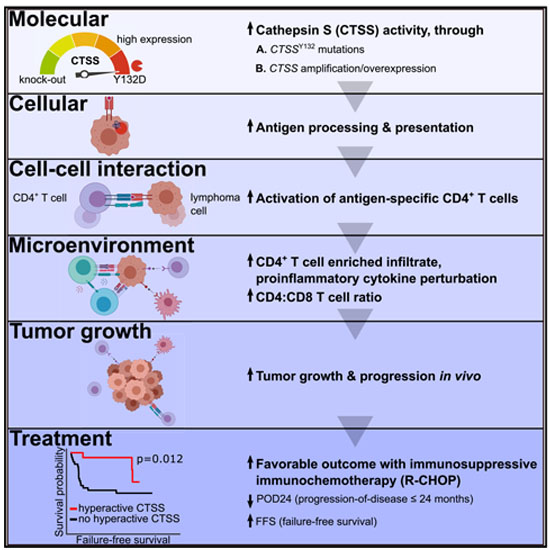Cathepsin S Alterations Induce a Tumor-Promoting Immune Microenvironment in Follicular Lymphoma
23-Apr-2020
Cell Rep., [online ahead of print] , DOI:https://doi.org/10.1016/j.celrep.2020.107522
Cell Rep., online article
Tumor cells orchestrate their microenvironment. Here, we provide biochemical, structural, functional, and clinical evidence that Cathepsin S (CTSS) alterations induce a tumor-promoting immune microenvironment in follicular lymphoma (FL). We found CTSS mutations at Y132 in 6% of FL (19/305). Another 13% (37/286) had CTSS amplification, which was associated with higher CTSS expression. CTSS Y132 mutations lead to accelerated autocatalytic conversion from an enzymatically inactive profrom to active CTSS and increased substrate cleavage, including CD74, which regulates major histocompatibility complex class II (MHC class II)-restricted antigen presentation. Lymphoma cells with hyperactive CTSS more efficiently activated antigen-specific CD4+ T cells in vitro. Tumors with hyperactive CTSS showed increased CD4+ T cell infiltration and proinflammatory cytokine perturbation in a mouse model and in human FLs. In mice, this CTSS-induced immune microenvironment promoted tumor growth. Clinically, patients with CTSS-hyperactive FL had better treatment outcomes with standard immunochemotherapies, indicating that these immunosuppressive regimens target both the lymphoma cells and the tumor-promoting immune microenvironment.











